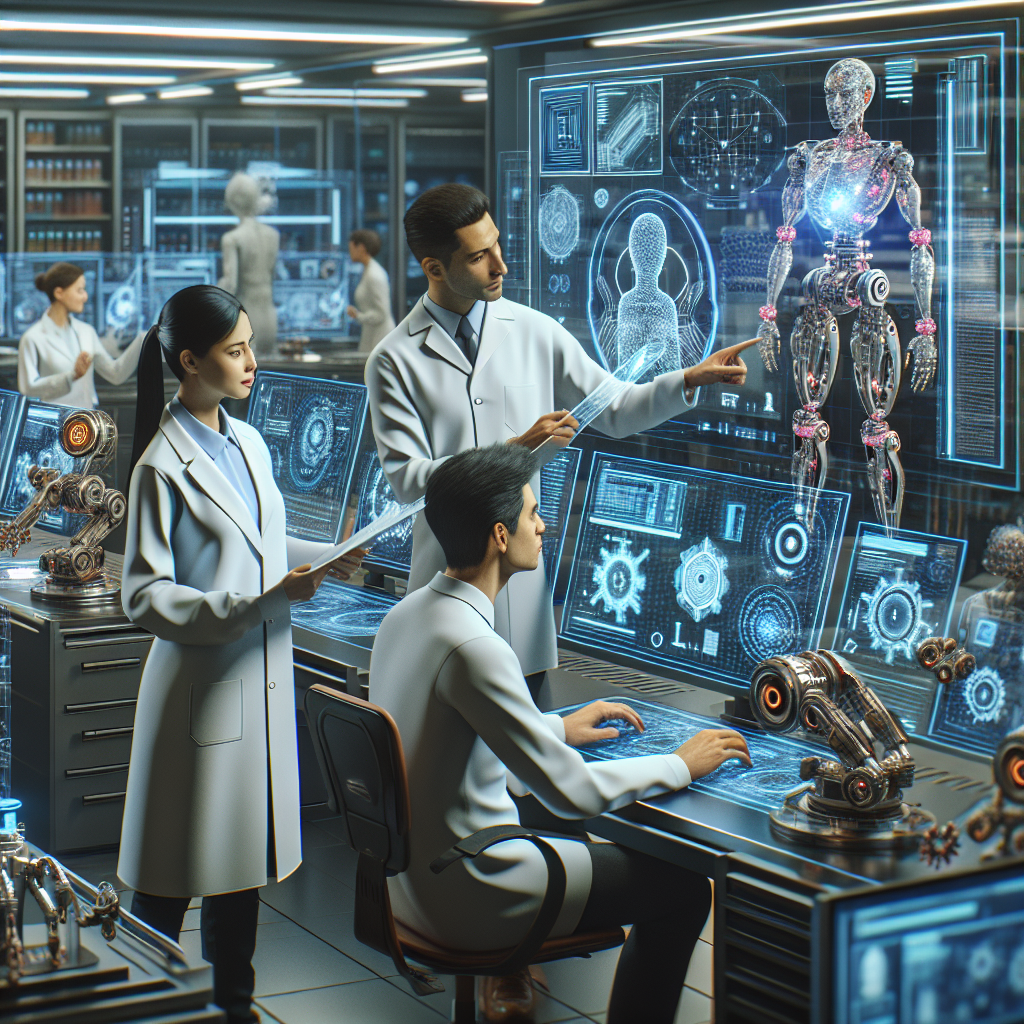The Future of AI: Google's Groundbreaking Updates from Google IO 2024
Introduction
Google's IO 2024 event was nothing short of a technological revolution. The three-hour-and-eight-minute live stream was packed with mind-blowing innovations, unveiling 20 significant updates in the AI landscape. This article dives deep into these advancements, offering a zesty analysis of what these changes mean for the future of AI and technology as a whole.
Music Effects: The DJ of the Future
One of the standout features announced was Music Effects, a text model transforming text prompts into music tracks. Imagine being your own DJ, adding instruments, adjusting their prominence, and mixing them live. This feature isn't just a novelty; it represents a leap in how AI can augment creative processes. The interface is intuitive, making it accessible for both amateur musicians and seasoned professionals looking to experiment with new sounds.
Gemini: Your New AI Companion
Google introduced the all-new Gemini app, available on both iOS and Android. This app isn't just an incremental upgrade; it's a game-changer. With a plethora of AI features, Gemini promises to be your co-pilot in navigating the digital world, from smart suggestions to seamless integration with other Google services. It’s an AI upgrade that elevates your smartphone to a new level of intelligence.
Revolutionizing Search: AI Overviews
One of the most impactful announcements was the introduction of AI Overviews in Google Search. This feature is rolling out in the US and will soon be available worldwide. It changes the way search results are presented, offering comprehensive, AI-driven summaries of information. This not only makes searches more efficient but also ensures that users get the most relevant information without wading through endless links.
Ask Photos: A New Way to Search Your Memories
Google Photos is about to get a whole lot smarter with the new Ask Photos feature. Instead of manually searching through thousands of pictures, you can now ask the AI to find specific elements within your photos. Whether you're looking for a picture of your car's license plate or a snapshot from a particular event, AI makes it as easy as asking a question.
For more background on AI advancements in image recognition, check out MIT Technology Review.
Expanding Context: Gemini’s Massive Upgrade
The Gemini app is not only smarter but also more capable with its expanded context window. Developers can now feed it a PDF up to 1,500 pages long, and the context window has been increased from 1 million tokens to 2 million tokens. This massive upgrade allows for more comprehensive data analysis and response generation, making it an invaluable tool for both developers and everyday users who opt for the advanced version.
Google Workspace: AI-Powered Productivity
Google Workspace is receiving a significant AI boost. The new features include summarizing emails in Gmail, summarizing meetings in Google Meets, and more. These updates aim to streamline productivity, making it easier to manage your work and stay organized. The ability to generate summaries and search through your emails and meetings can save users countless hours, making Workspace an indispensable tool for professionals.
Notebook LM: The Future of Interactive Learning
Notebook LM takes content organization to the next level by using AI to create summaries, study guides, FAQs, and quizzes from your input materials. With the new audio overview feature, it can now generate audio discussions based on text materials, turning study sessions into interactive dialogues. This is particularly useful for students who prefer auditory learning, offering a personalized and dynamic educational experience.
AI Agents and Project Astra: Your Personal Assistants
Google's new AI agents are designed to reason, plan, and execute tasks autonomously. They showcased a customer service example where the AI handles everything from searching for receipts to scheduling pickups, all without human intervention. Project Astra introduces a universal AI chat assistant that can perform multiple tasks quickly and efficiently, even recognizing objects through Vision capability.
Imagine 3 and Music AI Sandbox: Creativity Unleashed
Google's new text-to-image model, Imagine 3, offers photorealistic image generation from text prompts. Artists and designers will find this tool invaluable for creating visuals quickly and accurately. The Music AI Sandbox provides musicians with a suite of AI tools to create and manipulate music, pushing the boundaries of what’s possible in music production.
Explore more about AI in creative fields at Ars Technica.
Text-to-Video and Hardware Innovations
The new text-to-video generation tool, Veo, aims to compete with OpenAI's Sora. This tool, while not yet available for testing, promises to revolutionize video production by allowing users to generate videos from text descriptions. Google also introduced new hardware, including the Trillium TPU, aimed at delivering unprecedented performance and efficiency for AI tasks.
AI Teammates and Data Analysis in Gemini Advanced
AI teammates represent a novel approach to collaborative work. By creating AI entities that can manage projects, track tasks, and provide real-time updates, Google is setting the stage for a future where AI seamlessly integrates into team dynamics. Gemini Advanced takes this further by offering data analysis features, allowing for more sophisticated handling of spreadsheets and documentation.
Conclusion
Google's announcements at IO 2024 underscore their commitment to making AI an integral part of everyday life. From creative tools to productivity enhancements and intelligent assistants, these innovations promise to transform how we interact with technology. As these features roll out and become more integrated into our digital lives, the way we work, create, and search will never be the same.
With these advancements, the future of AI looks incredibly promising. Stay tuned for more updates as Google continues to push the boundaries of what's possible with artificial intelligence.
For more information on AI and its implications, visit TechCrunch.
